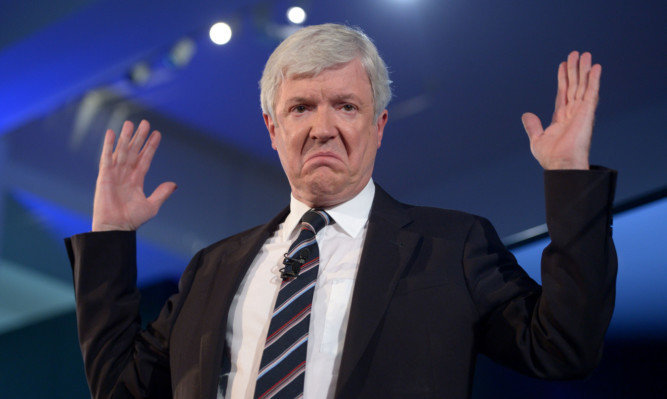There are “some very difficult choices ahead” for the BBC and some services will have to close, the broadcaster’s director general Lord Hall said as he unveiled plans for its future.
Giving his first of a four-part response to the Government’s review of its royal charter, he promised an “open BBC” that collaborates with rival media and the public, and serves as a “catalyst for this country’s incredible talent”.
In his speech at the Science Museum in London, Lord Hall said the organisation is going to “take risks, push boundaries”, and “not be afraid of controversy”.
He added that Chancellor George Osborne’s July Budget had left the BBC with difficult decisions, including the reduction and closure of some services.
In a settlement reached ahead of the Budget, the corporation agreed to help finance spending cuts by shouldering the cost of free television licences for people aged over 75.
It will cost the BBC an estimated £750 million by 2020, almost a fifth of its current annual income.
Lord Hall said that it meant the BBC would have to save 20% of its income over the next five years at a time when its share of TV revenues was likely to fall.
“The BBC faces a very tough financial challenge. So we will have to manage our resources ever more carefully and prioritise what we believe the BBC should offer,” he said.
“We will inevitably have to either close or reduce some services.”
But he failed to specify where the cuts would be made, adding that he may not have the answers until Christmas.
Lord Hall said: “By Christmas I want to say how we will get to the first part of our financial challenge.”
He added that some of the cuts “will come out of looking at management layers and the scope and scale of support services and so on”.
“By Christmas I will tell you how we’re going to make the rest of it add up,” he continued.
“I want to ensure we’re spending every single pound in the BBC on services that matter to our audiences.”
The speech comes after Culture Secretary John Whittingdale announced consultations on the future of licence fee funding for the BBC, questioning whether the corporation should be “all things to all people” or have a more “precisely targeted” mission.
Lord Hall said: “For the next 10 years, we will need to ride two horses – serving those who have adopted the internet and mobile media, while at the same time making sure that those who want to carry on watching and listening to traditional channels continue to be properly served too.
“This is where the idea of an open BBC for the internet age comes from.”
The director general said that the internet had made it easier to find information but harder to know whether to trust it.
Describing what the “open BBC” would look like, he acknowledged that the mobile service it provided would need to be developed, adding that there would be a “bespoke BBC News” that would be the “backbone” of the broadcaster’s global news operation.
Lord Hall announced: “In the future, the BBC would set aside licence fee funding to invest in a service that reports on councils, courts and public services.”
The BBC’s proposal says the aim is to put in place a network of 100 public service reporters across the country. Reporting would be available to the BBC but also to all “reputable” news organisations.
He added that the news service would be reconfigured to meet the expectations of audiences across the country.
“We will never give up our role in reporting the whole of the UK back to itself, but we also have to recognise that news in some parts of the country simply does not apply to others.”
Another proposal outlined during the speech was the introduction of an “ideas service” as a “core part” of the vision for an “open BBC”.
Lord Hall said the service would host content not only from the broadcaster, but also from the country’s cultural institutions, from the British Museum and the Royal Shakespeare Company to the Edinburgh Festivals.
Other plans will see changes to the iPlayer that will allow rival shows to be seen on the catch-up service.
“I want to experiment with the BBC issuing bigger and bolder series all at once on iPlayer, so viewers have the option of ‘binge-watching’,” said Lord Hall.
